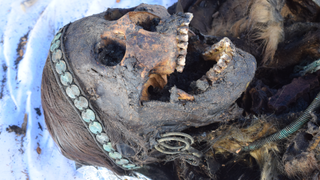Science News: Recent scientific discoveries and expert analysis
Read the latest science news and recent scientific discoveries on Live Science, where we've been reporting on groundbreaking advances for over 20 years. Our expert editors, writers and contributors are ready to guide you through today's most important breakthroughs in science with expert analysis, in-depth explainers and interesting articles, covering everything from space, technology, health, animals, planet Earth, and much more.

Explainers | Everything you need to know about the science news that matters.

Science Spotlight | Shining a light on new science transforming our world.
Latest news

China's 'artificial sun' reactor shatters major fusion limit — a step closer to near-limitless clean energy
By Patrick Pester published
China's EAST nuclear fusion reactor has successfully kept plasma stable at extreme densities, passing a major fusion milestone and potentially bringing humanity closer to wielding near-limitless clean energy.
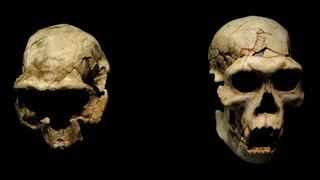
Homo erectus wasn't the first human species to leave Africa 1.8 million years ago, fossils suggest
By Charles Q. Choi published
A new analysis of enigmatic skulls from the Republic of Georgia suggest that Homo erectus wasn't the only human species to leave Africa 1.8 million years ago.
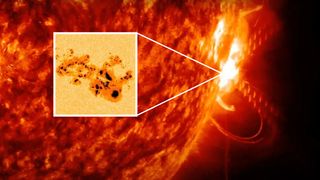
Giant sunspot that triggered recent solar 'superstorm' shot out nearly 1,000 flares and a secret X-rated explosion, record-breaking study reveals
By Harry Baker published
The massive sunspot that sparked an "extreme" geomagnetic storm in May 2024 unleashed hundreds of other dangerous solar flares, including a hidden X-class outburst, a new paper reveals. The study sets a record for the longest continuous observation of a single active region on our home star.
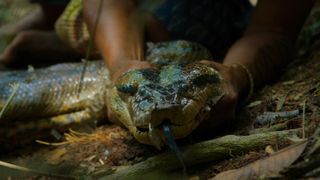
The Waorani capture an Anaconda in Bameno, Ecuador.
By Sascha Pare published
The Waorani capture an Anaconda in Bameno, Ecuador.
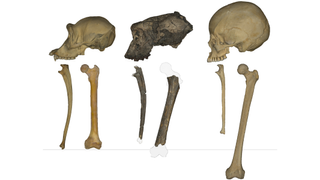
Tiny bump on 7 million-year-old fossil suggests ancient ape walked upright — and might even be a human ancestor
By Sophie Berdugo published
The way Sahelanthropus tchadensis moved has long been debated. The discovery of a small bump on the front of the thigh bone is "beyond convincing" evidence this ape was bipedal.
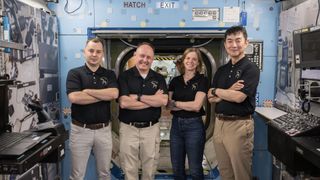
NASA announces unprecedented return of sick ISS astronaut and crew
By Sascha Pare last updated
NASA has announced the early return of Crew-11 from the International Space Station after an unidentified astronaut experienced a medical problem.
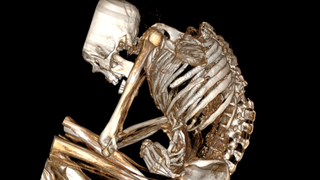
1,100-year-old mummy found in Chile died of extensive injuries when a turquoise mine caved in, CT scans reveal
By Kristina Killgrove published
The mummified remains of a man buried close to a turquoise mine in Chile's Atacama Desert suggest he was a miner who died in a tragic occupational accident.
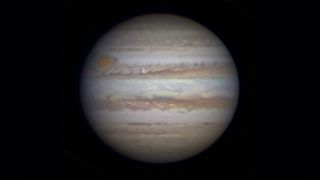
Jupiter will outshine every star in the sky this weekend — how to see the 'king of planets' at opposition
By Jamie Carter published
Jupiter reaches opposition on Jan. 10, when it will shine all night at its brightest as Earth moves between the giant planet and the sun.

Hubble telescope discovers 'Cloud-9,' a dark and rare 'failed galaxy' that's unlike anything seen before
By Ivan Farkas published
Astronomers have revealed a new type of cosmic object called Cloud-9 — a dim, starless gas cloud anchored by a massive dark matter halo that may be the first-confirmed failed galaxy.
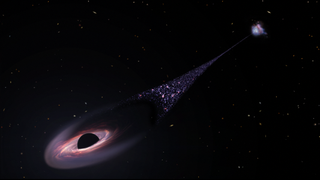
James Webb telescope confirms a supermassive black hole running away from its host galaxy at 2 million mph, researchers say
By Elizabeth Howell published
JWST peered at the glowing trail of stars left behind by a candidate runaway supermassive black hole deep in space, revealing new insights after other telescopes looked at the event.

Orbiting satellites could start crashing into one another in less than 3 days, theoretical new 'CRASH Clock' reveals
By Harry Baker published
Researchers have proposed a theoretical timepiece, dubbed the "CRASH Clock," which tells us how quickly satellites would start colliding if they lost the ability to avoid each other, such as during a powerful solar storm. And its value is rapidly decreasing.
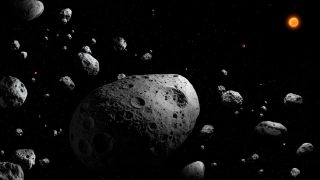
Vera C. Rubin Observatory discovers enormous, record-breaking asteroid in first 7 nights of observations
By Elizabeth Howell published
In its preliminary data release, taken from just seven nights of observations, the powerful Vera C. Rubin Observatory has discovered an enormous, fast-spinning asteroid that sets a new record.
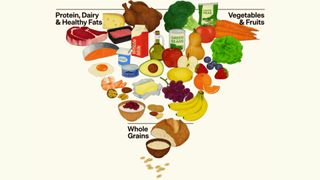
New US food pyramid recommends very high protein diet, beef tallow as healthy fat option, and full-fat dairy
By Nicoletta Lanese published
The federal government has released new dietary guidelines, introducing an emphasis on consuming meat and dairy and avoiding highly processed foods.
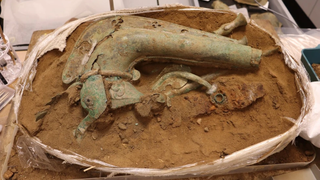
Rare 2,000-year-old war trumpet, possibly linked to Celtic queen Boudica, discovered in England
By Kristina Killgrove published
Archaeologists have announced their discovery of a metal hoard that contained an extremely rare example of a Celtic battle trumpet.
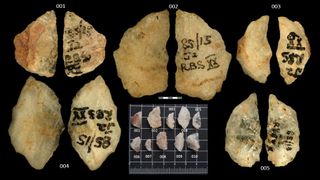
60,000-year-old poison arrows from South Africa are the oldest poison weapons ever discovered
By Sophie Berdugo published
Five quartz arrowheads found in a South African cave were laced with a slow-acting tumbleweed poison that would have tired prey during long hunts.

Leonardo da Vinci's DNA may be embedded in his art — and scientists think they've managed to extract some
By Sascha Pare published
In a first, scientists have extracted DNA from a Renaissance-era drawing attributed to Leonardo da Vinci, but they can't be sure that the genetic material belongs to the Italian polymath.
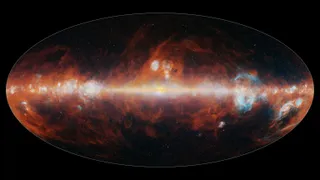
NASA telescope combines 100 maps of the universe into one, promising huge discoveries
By Sharmila Kuthunur published
NASA's SPHEREx telescope unveiled its first full-sky map of the universe, combining more than 100 infrared observations into one dazzling mosaic.

9,500-year-old cremation pyre of a hunter-gatherer woman is the oldest of its kind in the world
By Margherita Bassi published
Hunter-gatherers cremated the headless body of a woman in a pyre around 9,500 years ago in what is now Malawi.
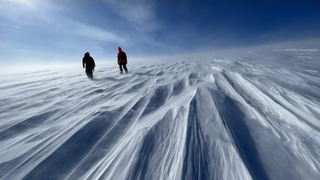
Huge ice dome in Greenland vanished 7,000 years ago — melting at temperatures we're racing toward today
By Skyler Ware published
Scientists drilled to the bottom of Greenland's 1,600-foot deep Prudhoe Dome and found it disappeared in the early Holocene, when temperatures were close to what we're predicted to reach by the end of the century.
Get the world’s most fascinating discoveries delivered straight to your inbox.
 Live Science Plus
Live Science Plus






